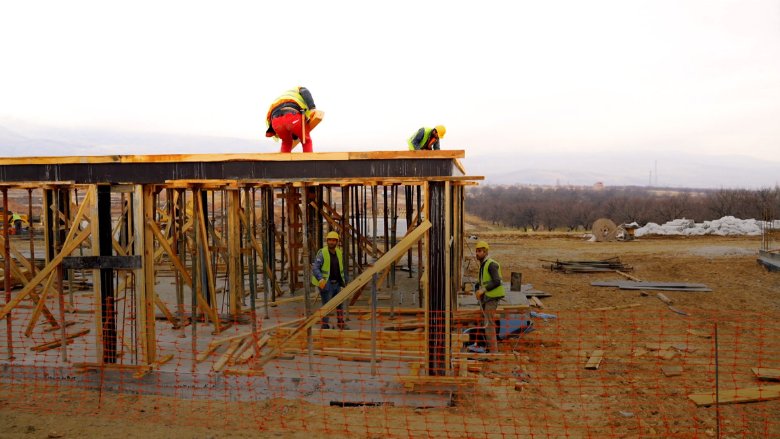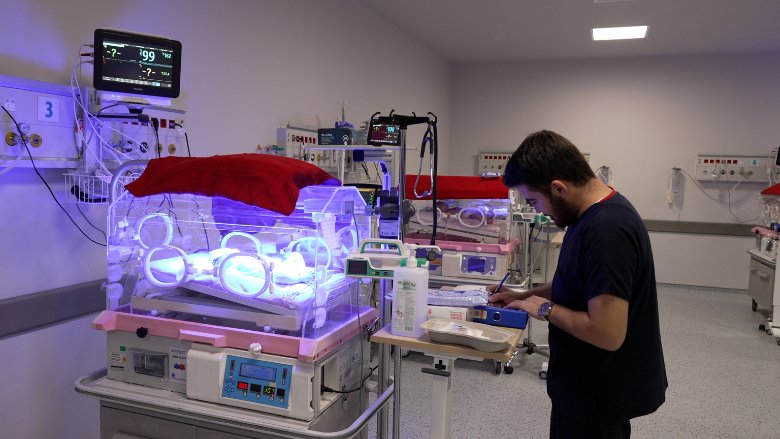As Türkiye commemorates the first anniversary of the worst earthquake-related disaster to strike the country in more than 80 years, a massive rebuilding and recovery effort is underway. The earthquakes of February 6, 2023 resulted in unprecedented loss of human life, destruction of homes and infrastructure, and damage to the economies of 11 southern provinces, which are home to 14 million people.
As a key development partner, the World Bank Group mobilized at record pace to support the post-earthquake recovery effort. Two Bank-financed operations, worth $1.45 billion, are currently underway, helping rebuild damaged or collapsed infrastructure, restore health services, reconstruct rural housing for 7,000 people, and support small businesses to recover and a $600 million operation is facilitating the flow of credit to businesses in the affected areas.
Search and Rescue
The immediate need after the earthquakes struck was to save lives. Thousands of emergency workers, along with specialized gear and hardware, were deployed to the affected areas in a massive search and rescue operation.
Sound-detection equipment, purchased under the Bank Group-financed Sustainable Cities Project to detect underground water leakages for the Antalya Wastewater Treatment Plant, was repurposed to help search for survivors in the earthquake-affected Hatay province.
“Although we use it for detecting water leakages, these devices can pick up any sound. They are voice-sensitive and also have vibration-sensing features. When the earthquake tragedy occurred, our equipment joined the search and rescue effort to save lives,” said Esra Volkan, Procurement Officer at the Antalya Wastewater Treatment Plant.
Healing Healthcare
In Antakya, which was decimated by the earthquakes, the 300-bed Defne Hospital was built in record time to restore healthcare services to the community. With help from two Bank Group-financed projects – Türkiye Earthquake Recovery and Reconstruction Project and the Health System Strengthening and Support Project – Defne Hospital has been able to purchase medical and other equipment to enable it to provide general and specialized medical services medical services, including intensive care, dialysis, and MRI imaging.
“The rapid reconstruction and restoration of such a fully equipped health facility is a beacon of hope, offering not just medical care but a promise of recovery and renewal for our community, which lost so much during the earthquakes,” said Dr. Barış Kavvasoglu, Chief Physician at Defne.
The Bank Group’s Multilateral Investment Guarantee Agency is, separately, providing guarantees for the construction of a hospital with a capacity to serve 9,000 patients a day in Gaziantep province. According to Bank estimates, nearly one-third of the healthcare infrastructure was severely damaged by the earthquakes and the recovery and reconstruction cost for the health sector is an estimated $4.3 billion.
Restoring Livelihoods
“We experienced a financial earthquake, in addition to human suffering and destruction,” stressed Edip Kiliçlar, owner of Kaltek Machinery, which produces specialized machine parts for water, oil, and drilling pipes. Located in Antakya, the company employed 30 people and boasted an annual revenue of about $25 million. All this ended when the earthquakes struck. Building damage was not that big but they lost 50% of their human capital. The company was able to partially resume operations about three months later and, in December, received a financial lifeline in the form of a reimbursable grant of $10,000 under the Bank Group-financed Türkiye: Post-Earthquake Micro, Small and Medium Enterprises Recovery project. Mr. Kiliçlar is hoping to fully restore operations as he continues to navigate multiple challenges, including the loss of skilled workers displaced by the disaster.
The $450 million Türkiye: Post-Earthquake Micro, Small and Medium Enterprises (MSMEs) Recovery project, being implemented by the Small and Medium Enterprises Development Organization of Türkiye (KOSGEB), aims to stimulate economic recovery by supporting viable MSMEs in the earthquake-affected provinces. So far, the project, which became effective in September 2023, has already extended financial lifelines to nearly 9,000 MSMEs.
This is bolstered by support from the Bank Group’s International Finance Corporation, which has channeled resources through the financial sector to improve access to credit for the private sector. A $530 million facility is focusing on MSMEs, and a $150 million package will support a key manufacturing company in the earthquake region.
The 11 provinces most impacted by the earthquakes are home to nearly half a million private firms, 99% of which are MSMEs—the main source of employment for poor and near-poor households.


